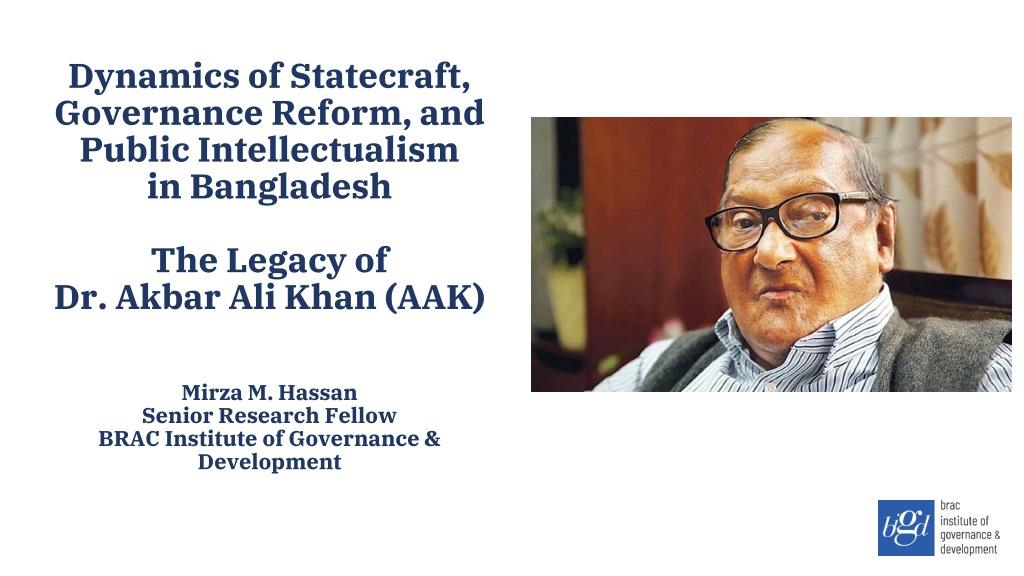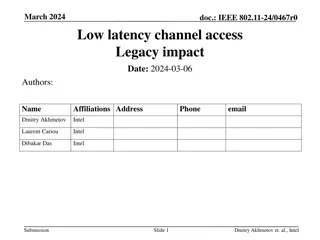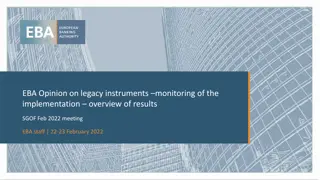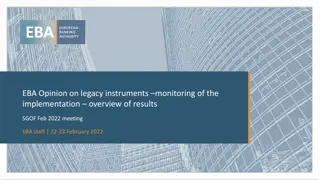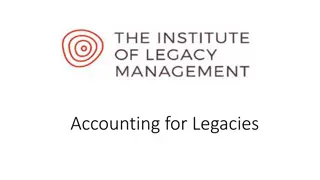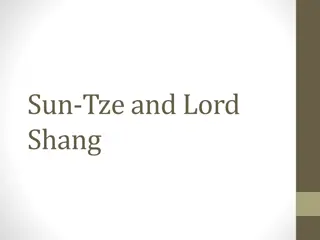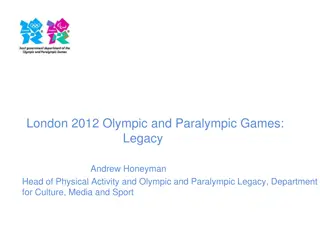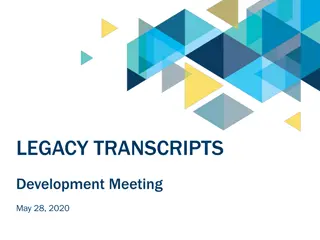Dynamics of Statecraft and Public Intellectualism: The AAK Legacy
Dr. Akbar Ali Khan, a notable figure in Bangladesh, made significant contributions to statecraft, governance reform, and public intellectualism. His oeuvre encompassed topics such as economics, politics, society, rule of law, bureaucracy, and more. AAK's role as a public intellectual involved contextualizing his knowledge for a wider audience, evolving from academic neutrality to an oppositional stance while navigating illiberal contexts. His intellectual legacy lies in the concepts and theories he frequently employed.
Download Presentation

Please find below an Image/Link to download the presentation.
The content on the website is provided AS IS for your information and personal use only. It may not be sold, licensed, or shared on other websites without obtaining consent from the author. Download presentation by click this link. If you encounter any issues during the download, it is possible that the publisher has removed the file from their server.
E N D
Presentation Transcript
Dynamics of Statecraft, Governance Reform, and Public Intellectualism in Bangladesh The Legacy of Dr. Akbar Ali Khan (AAK) Mirza M. Hassan Senior Research Fellow BRAC Institute of Governance & Development
Dr Akbar Ali Khans Oeuvre Economics politics and society Legislature, electoral institutions/ governance and development, political party, democratic transition, civil society, state-society relations Public/fiscal economics, poverty State AAK s Oeuvre Rule of Law Bureaucracy, regulatory governance, decentralization Judiciary, informal justice Literary Analysis History Still using the analytical lenses of social sciences Ancient and medieval Bengal
Statecraft, Public intellectualism and AAK Statecraft Statecraft--as an art, methods or strategies that are deployed to regulate affairs of the state. Skillful management of state affairs. AAK prolifically wrote on these issues both empirically and reflectively.
Statecraft, Public intellectualism and AAK Public Intellectualism As a committed public intellectual, AAK contextualized his specialized knowledge in an accessible way for a wider range of people a hallmark characteristic of public intellectualism. His interest and expertise in multiple disciplines and specialized knowledge and experiences about statecraft (since he dwelled inside the belly of the beast for decades) made him a unique public intellectual that attracted a diverse range of citizens. Intellectual evolution: from academic neutrality (scholar bureaucrat) to oppositional stance albeit backed by rigorous evidence.
Statecraft, Public intellectualism and AAK Public Intellectualism He lived and thought and wrote not in a liberal democratic milieu whereby public intellectuals mandate is pre-dominantly to develop a counter-hegemonic narrative to gain consent of the citizens. Rather he operated in an illiberal context (where force overwhelms consent ) whereby public intellectualism with an aim to confront the state narratives is constrained by the imperatives of self-censorship and personal risk-taking as well as sacrificing material gains. With a strong personality, patriotism, and moral courage, AAK could successfully navigate such predicaments of a non-liberal context and earn respect among the wider sections of society.
Intellectual Legacy of AAK My focus is on the various concepts, analytical approaches, and theories that Dr. AAK frequently deployed to reflect on the rich empirics he managed to garner on the dynamics of BD statecraft, particularly in relation to development trajectories, state-society transactions, and governance reform. Historical Determinism Isomorphic Mimicry Developmental Paradox
Historical Determinism Under the Thumb of History? One of his conceptual/analytical leitmotifs is the historical determinism or path-dependent nature of institutional evolution. This means institutions and relevant practices (and associated norms) that emerged in the deep past of a country continue to cast a long shadow over the current ones. This would be considered an iron cage of history akin to the Weberian notion of the iron cage of modernity. He argued that Bangladesh s notorious political instability and violent prone politics are inevitable products of Bengal history (ancient to medieval) characterized by pre-dominantly fragmentary-local (as opposed to unitary- imperial) state formation. He also explained dynastic politics or political rivalries in BD as a product of the long past since the citizens continue to live in the eternal yesterday and leaders charisma, as in monarchical societies, can be easily transferred to the spouses and offspring. Routinizationof charisma, a la Weber, has never been possible thanks to BDs historical political history
Historical Determinism Under the Thumb of History? He famously observed that BD villages historically were of open in nature (open village as opposed to corporate villages as existed in many other parts of India) characterized by vigorous form of individualism the lack of collectivist spirits absence of joint responsibility system loosely structured institutions weakness of grass-root institutions and isolation paradox (that raises the cost of cooperation). The consequences of open village systems have been significant: large cooperatives failed, but small micro-credit groups flourished; viable local political institutions self-governing local governments and other decentralized units remained dysfunctional. In general, He clearly privileged structure over agency. He did not consider the plasticity of social-political organizations and their potential to be shaped in new ways.
Isomorphic Mimicry Another dominant conceptual entry point of AAK has been the notion of isomorphic mimicry (Powell and DiMaggio in sociology later adapted by LantPrichettet al. for development). it is an organizational strategy in which organizations attempt to gain legitimacy by appearing to be like other organizations with legitimacy [such as meritocratic bureaucracy or other western-liberal formal rule-bound institutions]. Not a very novel idea think of the frequent mentions by academics of the trappings of liberal democracy or meritocratic civil service in a non-democratic party-state setting.
Isomorphic Mimicry Elimination of isomorphic mimicries has been judged by AAK as one of the critical strategies for governance reform in the public sector. For instance, he identified four institutions (Judiciary, Police, Land Records, and Bureaucracy) whereby such mimicry (due to colonial transplantation) should be eliminated: Bureaucracy, Judiciary, Land Record Management, and Police. Judiciary lawyer-centric and adversarial British common law system an isomorphic mimicry needs to be substantially replaced by the elements of the inquisitorial system of European civil law where judges retained considerable power over the lawyers and ADR, which resembles the traditional system of compromise. AAK s major thrust was on decolonization and de-westernization of the form of BD public institutions, which is arguably an important agenda for our future strategic thinking in relation to governance reforms
Developmental Paradox in Bangladesh World Bank: economic development in BD despite bad governance (market enhancing western-liberal forms secured property rights, transparency, accountability, rule of law etc.). Such a perspective assumed that a liberal form of governance must precede economic growth/development. In contrast, AAK believed such governance might not be necessary at the initial stage; rather, certain economic development may help create the conditions for establishing such a governance structure. He recognized the fact that, in practice, economic growth is maintained by other informal means by the private sector through ensuring growth-enhancing governance strategies. Researching the links between property rights/rule of law and economic development, he raised critical questions such as: Is economic growth in BD really impeded by deterioration in the rule of law and property rights? If not, then how does the private sector overcome these weaknesses? Can economic growth in BD continue indefinitely despite regress in rule of law and property rights? If not, why not? What is the justification for judicial and legal reforms in BD?
Developmental Paradox in Bangladesh AAK s responses were: as a low income country such liberal forms of governance may not hinder growth and in practice these did not; private sector devised varieties of creative solutions to deal with the governance deficits (use of private security, paying up extortionists, establishment of stationary bandits, speed money, increase uses of ADR and out of the court informal settlement etc.) But to approach middle income status BD will need to reform its judiciary, law enforcement institutions, and property rights, and I would assume AAK would insist that we should avoid the trap of isomorphic mimicry while reforming governance institutions He was clearly in favor of establishing some form of adaptable governance that would conform to the socio- politico-economic conditions of BD. But judging from his writings on reform one can argue that, he, at the end, preferred modified version of the western-liberal forms institutions and practices. As alternative to this hegemonic models of development, China and a few other economically successful countries have developed strategies of development more suited to the non-liberal context as in BD. AAK s bold and innovative thinking should inspire us to explore non-western paradigms of development and truly de-colonize our mindset to reimagine BD s future trajectories of development
Political Governance Reforming institutions related to representative electoral democracy and political party governance was a major concern for AAK and he made many recommendations in this regard including plea for establishing proportional representation system. But beyond this he argued the need for direct democracy especially in the form of referendums. The system of throwing the rascals out every five years was not deemed enough by him for democratizing the actually existing democracy in BD
Political Governance He also emphasized what he called Double Devolution of local government not only devolving power to the locally elected representatives but such representatives should also be made directly accountable to the local citizens beyond periodic elections. To the best of my knowledge, he did not discuss what mechanisms can ensure such direct accountability. Inspired by his thinking, there is a great need that we explore the possibilities of institutionalizing such direct democracy in the form of deliberative democracy a non-majoritarian fully consensus and talk based democratic forum.
